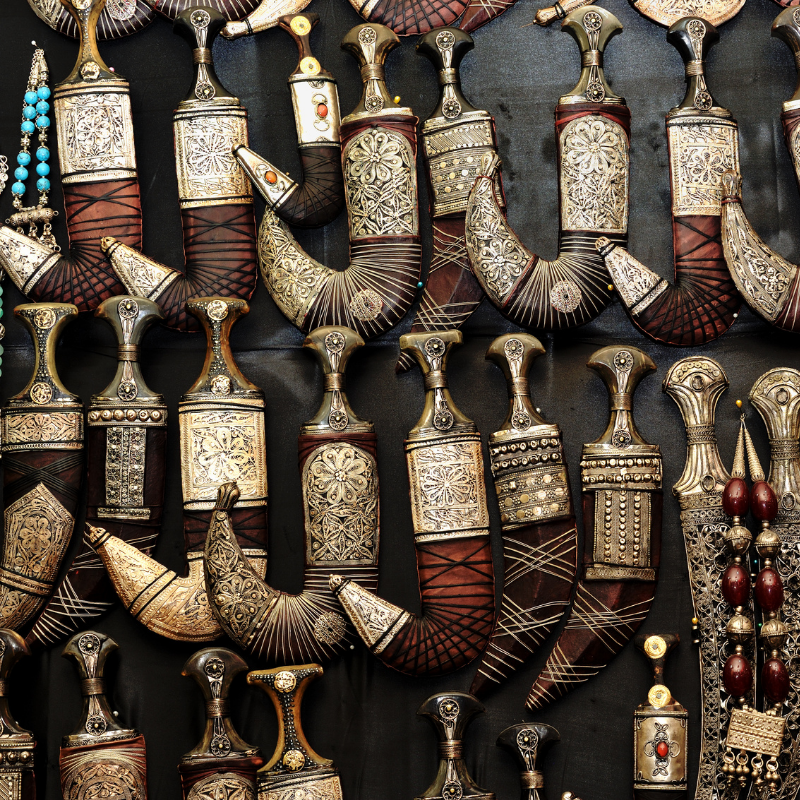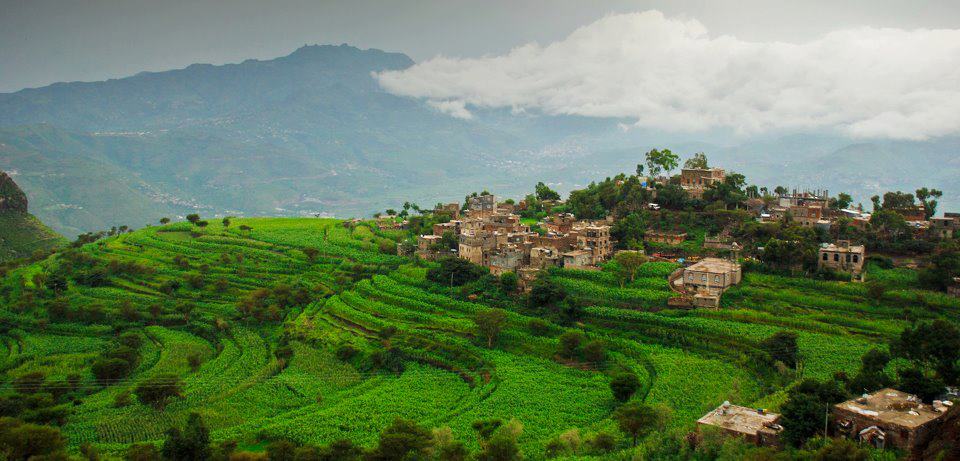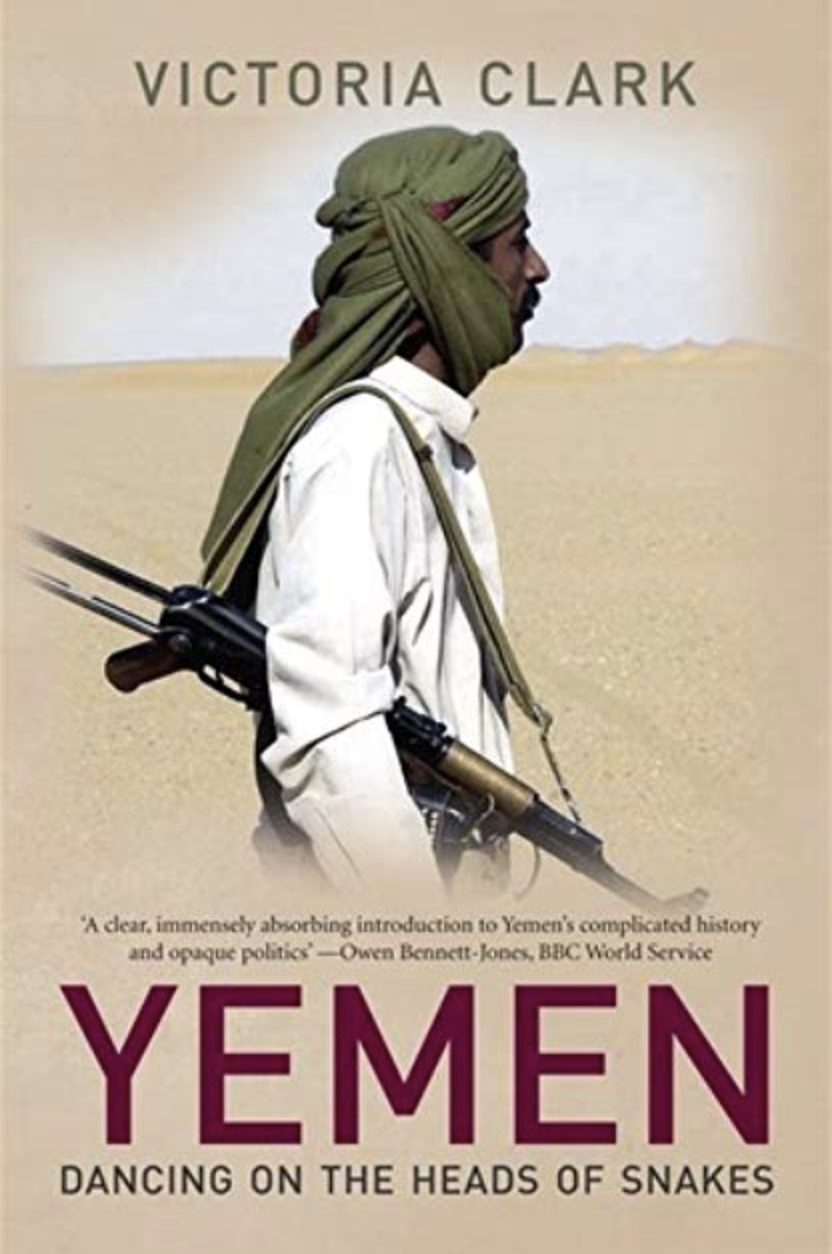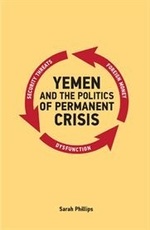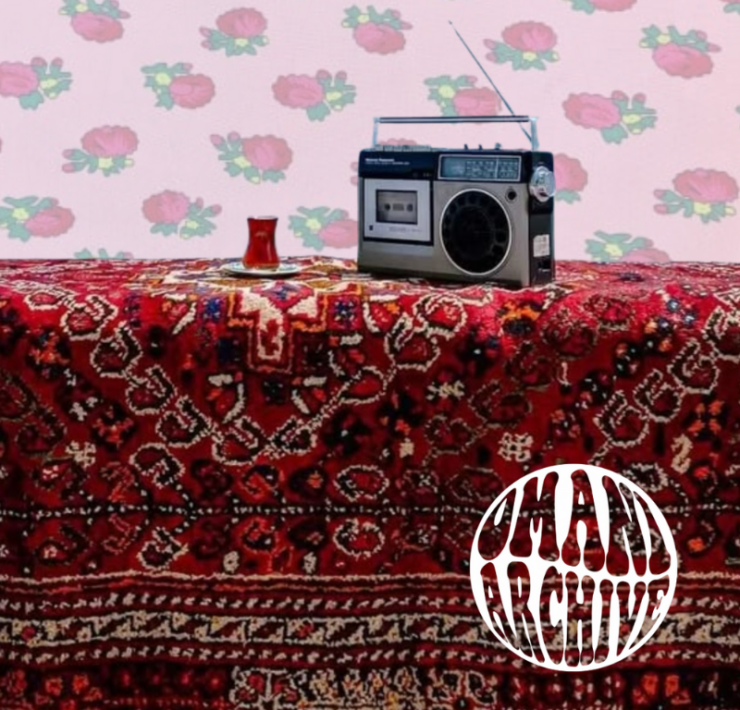Yemen: The poorest country in the Middle East; The corner of the Arabian Peninsula widely ignored as the oil monarchies of the Gulf rose to riches and global prominence; And now, embroiled in a deadly civil war protracted by the interference of external powers, further destabilising an already war-torn region.
Yet Yemen was once known as ‘Arabia Felix’ (happy Arabia) by those who travelled there. It was the home of frankincense, coveted thousands of miles away and traded all along the Silk Roads. It’s the original source of coffee and is home to architectural wonders from the past, now recognised as UNESCO World Heritage sites. It’s also hugely strategically important thanks to its proximity to the world’s biggest oil producer and a major economic artery, the Bab al Mandab strait.
 The fertile Ibb region in Yemen (image: bravowiki.blogspot.com)
The fertile Ibb region in Yemen (image: bravowiki.blogspot.com)
The current civil war is highly confusing to outsiders. Numerous factions and shifting loyalties make it difficult to understand what’s really happening on the ground, leading many – particularly in the media – to frame the conflict in terms of sectarianism: the eruption of historical tensions between Shia and Sunni, and a key theatre of the cold war between Saudi Arabia and Iran.
But Yemen is more complicated than this. With a limited history of sectarian tensions, we must look to the historical and regional dynamics that have created the situation we see today. This can help us understand 1) where Yemen really fits into the politics of the wider region, and 2) what possibilities exist for ending the violence and improving the lives of ordinary Yemenis.
Support victims of conflict in Yemen by shopping at the Pink Jinn Souq
The following list of 10 books includes historical, academic, and journalistic works, along with lighter-hearted stories of ordinary Yemenis – both in Yemen and in the diaspora – to help you see past the news headlines and understand the history, politics and culture of Yemen:
Victoria Clark is a freelance journalist whose epic book is widely regarded as one of the best overviews of the country one can read. The book was published in 2010, before the 2011 uprising and the subsequent civil war ensued. However, Dancing on the Heads of Snakes – named after former President Ali Abdullah Saleh’s description of ruling the country’s various tribal and political factions – provides an essential background to the problems facing Yemen today.
It explains the historical and regional roots of the frustrations felt by the various groups fighting each other, peppered with personal stories of her interactions with Yemenis from all walks of life, from ordinary tribesmen to former jihadis to President Saleh himself.
If only you read one book on Yemen, it should be this!
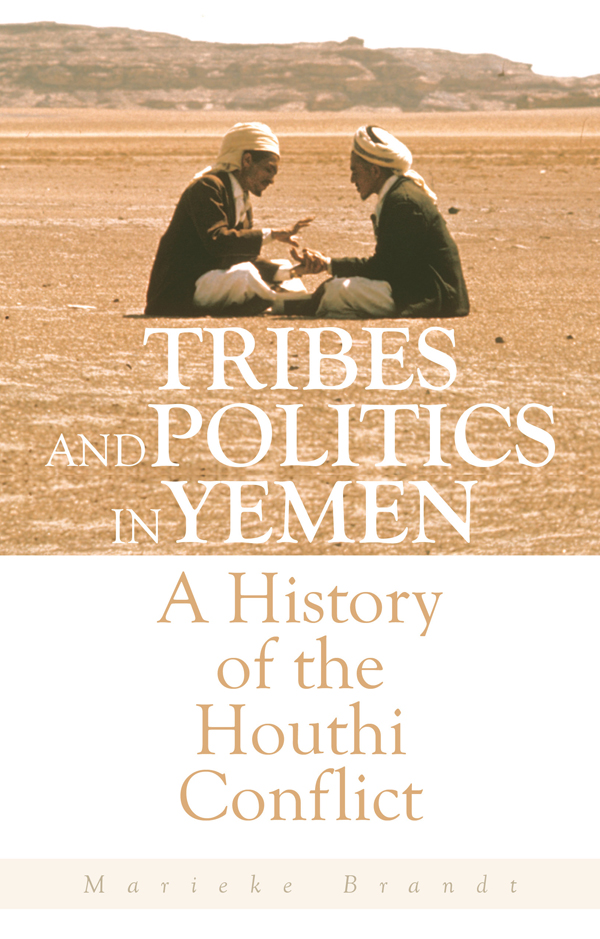
Although named for the current conflict that has been raging in Yemen since 2015, Brandt’s book draws on years of research in Yemen’s northern tribal hinterland from the early 2000s.
Her book provides an excellent overview of the Houthi movement and its complex relationships with the other Yemeni tribes, the central government, and neighbouring Saudi Arabia. It also provides detailed insight into the six wars the Yemeni government fought against the Houthis before 2011 that many forget about today.
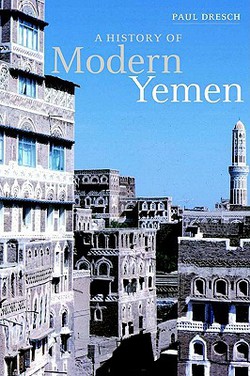
Published in 2000 but still widely read and acknowledged, Dresch’s history of Yemen is a valuable read for those seeking a more in-depth understanding of the country.
It covers Yemen’s experience of colonialism at the hands of the Ottoman and British empires, along with the interference of Egypt that coincided with Yemen’s brush with Arab nationalism. It also includes a detailed history of the Imamate in the north, leading up to the Republican revolution and the subsequent domination by Ali Abdullah Saleh and his cronies over unified Yemen.
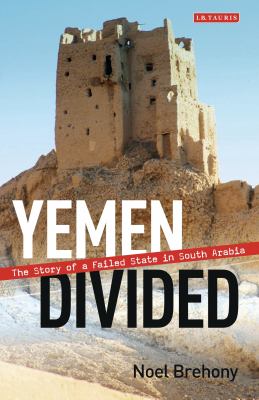 Noel Brehony is a former diplomat who served in Aden during the early years of the People’s Democratic Republic of Yemen (PDRY) which existed in the south before the unification of the country in 1990.
Noel Brehony is a former diplomat who served in Aden during the early years of the People’s Democratic Republic of Yemen (PDRY) which existed in the south before the unification of the country in 1990.
Yemen Divided provides a comprehensive history of the PDRY, and tell the fascinating story how South Yemen went from British colony to communist state to a ‘safe haven’ for terrorists in just half a century.

Stephen W. Day is a Professor of Middle East Politics at Rollins College in Florida, and his book gives an academic account of modern Yemeni history since the unification of the Yemeni Arab Republic (YAR) in the North and the PDRY in the South in 1990. It explains the internal political – and essentially regional – drivers of conflict in Yemen for those seeking a more nuanced framework than the sectarian narrative too often employed by the media.
Yemeni unification, which was widely seen as unfair and leading to the oppression and exploitation of the south at the hands of northern tribes, sowed the seeds for discontent, conflict and calls for southern secession. Regionalism and Rebellion provides a useful foundation for those trying to understand the various groups and shifting loyalties in the south today.
Dr Sarah Phillips is a lecturer at the Centre for International Security Studies at the University of Sydney. Her book, published in 2011, dives into the intricacies of the Saleh regime and the networks of patronage he built to sustain his rule. Although Saleh is no longer around to play power games in Yemen, the tribal and regional patronage system he built lives on and continues to shape the behaviour of key actors and therefore the trajectory of Yemeni politics on the ground. Understanding this system clarifies the power dynamics which will inevitably shape Yemen’s future.
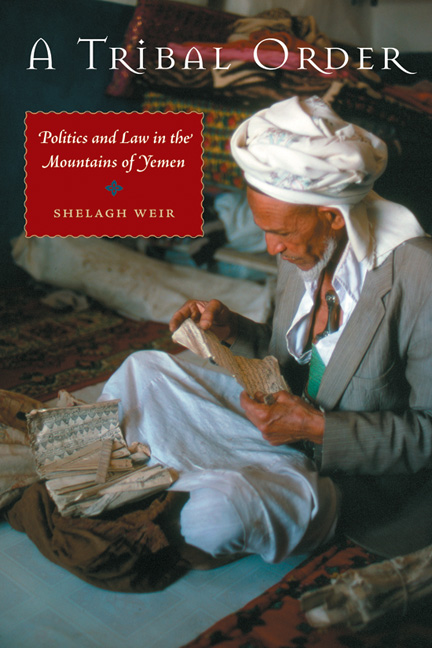
Shelagh Weir’s book is unique in that it deals specifically with tribalism in Yemen, which is frequently referenced (and often inaccurately) as a catch-all explanation of Yemeni politics and the current conflict.
Based on her years of research in the Jabal Razih region in the 1970s and 80s, Weir shares her unique insights into the intricacies of tribal life in northern Yemen, including tribal culture, and the political and legal systems that govern life in north Yemen outside of the formal state.
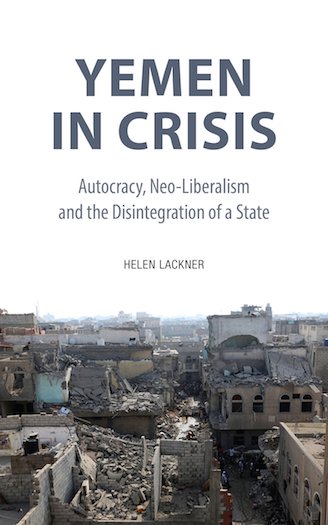
Helen Lackner is a former development consultant and academic at the School of Oriental and African Studies (SOAS), who has spent the past four decades of her career researching Yemen.
Published in 2017, Yemen in Crisis follows the country’s journey from the ‘Arab Spring’ protests of 2011, through the subsequent political transition and Houthi takeover culminating in the current civil war. Lackner examines in detail the fragmentation of the Yemeni ‘state’ and the various threats it faced, including Islamism, Southern secession and recurring conflict with Houthis.

Ginny Hill is a consultant and policy advisor who has covered Yemen as a journalist for over a decade. Her journalistic flair is ever-present in this gripping account of Yemen’s modern history, which includes countless stories of her personal experience covering events on the ground.
It puts the current conflict into context, explaining Yemen’s strategic position in the wider region and highlighting how this has been exploited by political actors for personal gain. She also offers a valuable account of the political manoeuvring by Ali Abdullah Saleh after he was ousted from power, which led to both the rise of the Houthis and his own demise.
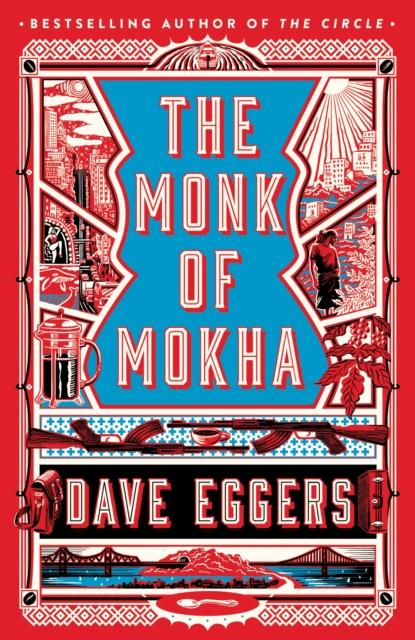
A slightly different addition to the list, The Monk of Mokha tells the true story of Mokhtar Alkhanshali, a Yemeni-American who decided to resurrect Yemen’s ancient coffee trade at the height of the civil war.
It provides a unique insight into the lives of Yemeni diaspora communities in America and the fascinating history of coffee in Yemen. But most importantly, it’s a poignant reminder of the persistence, resilience and potential of the Yemeni people.
These books are all written in English, and we recognise and regret that there are no Yemeni authors on the list. If you know of any English-language books about Yemen written by Yemenis, please let us know so we can read them and add them to the list! There are, however, a number of Yemenis in academia and the media writing incredibly insightfully about their country in a way that only they can. We’ll share their work in another blog post soon, inshallah…
If you found this useful, you might also like:
Socotra: Conflict and climate threaten Yemen’s “alien” island paradise
‘Dancing on the heads of snakes’: Yemen after Ali Abdullah Saleh
Who is Haitham bin Tariq? 5 things you need to know about the new Sultan of Oman

